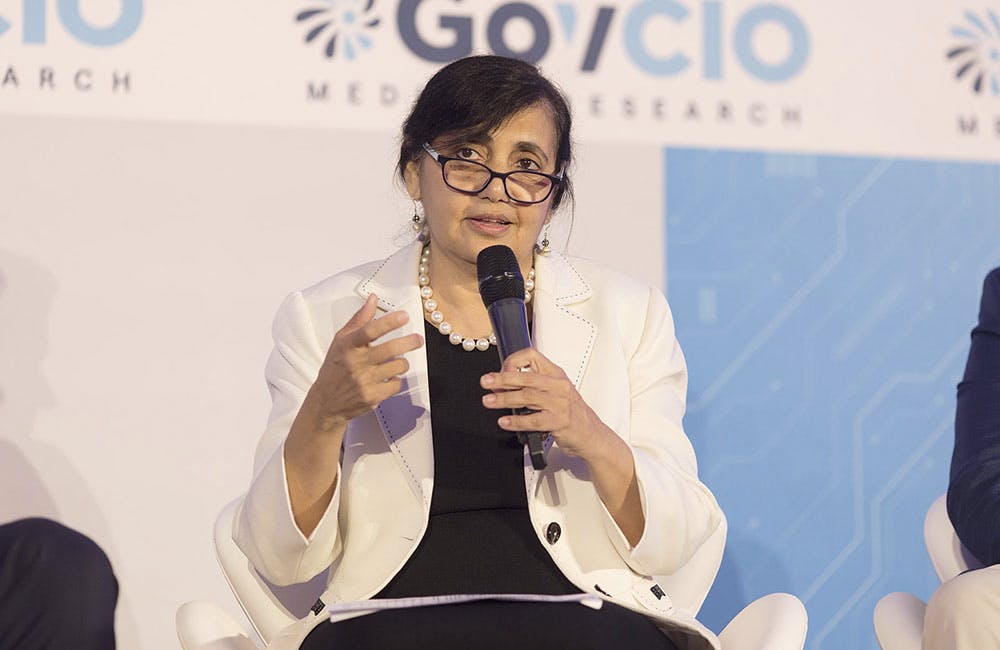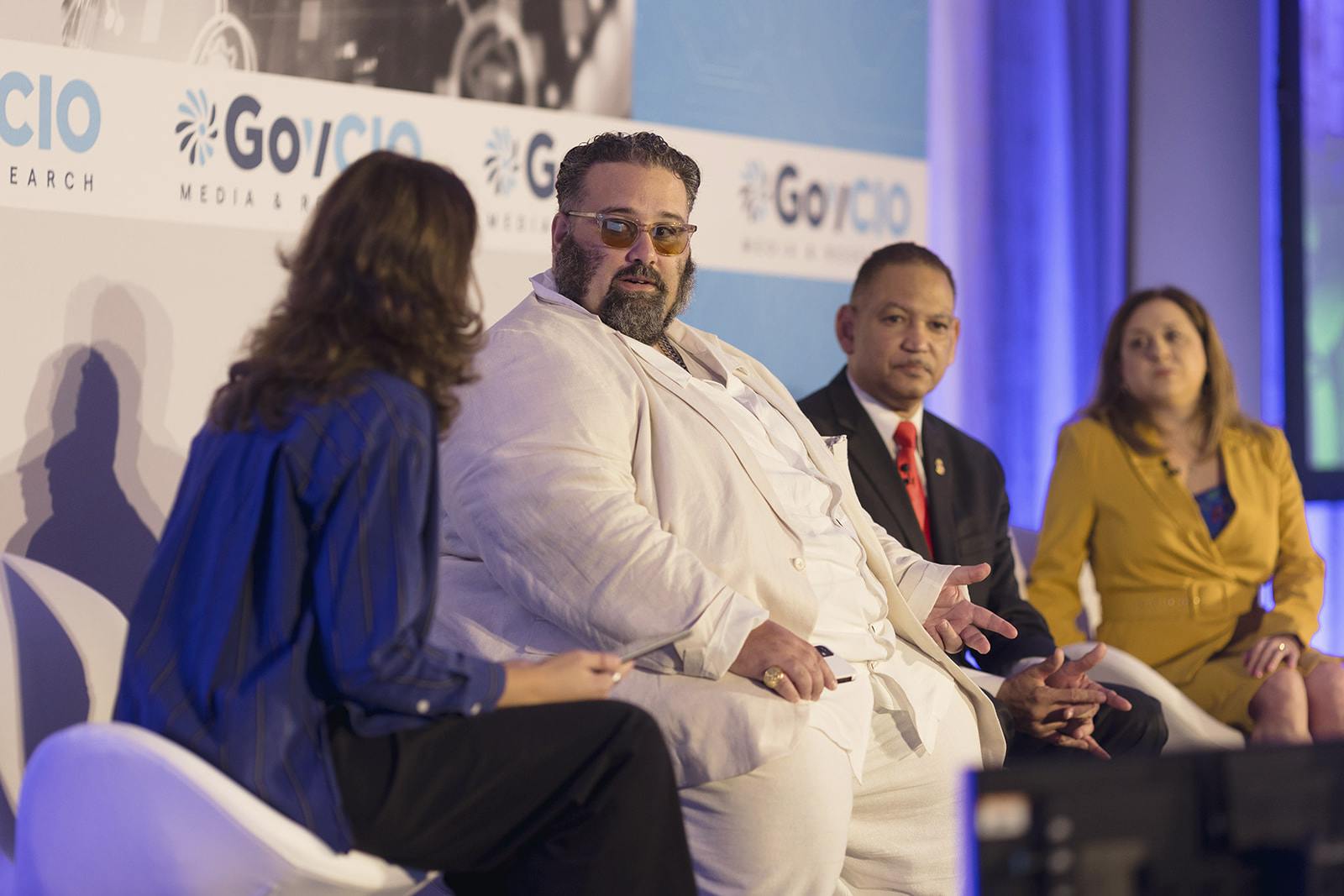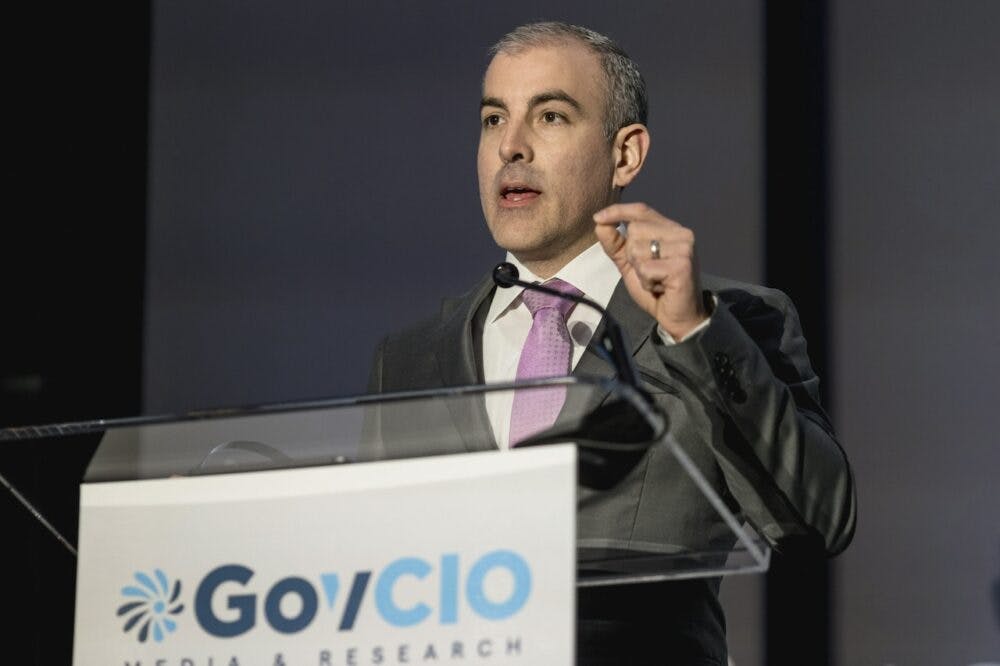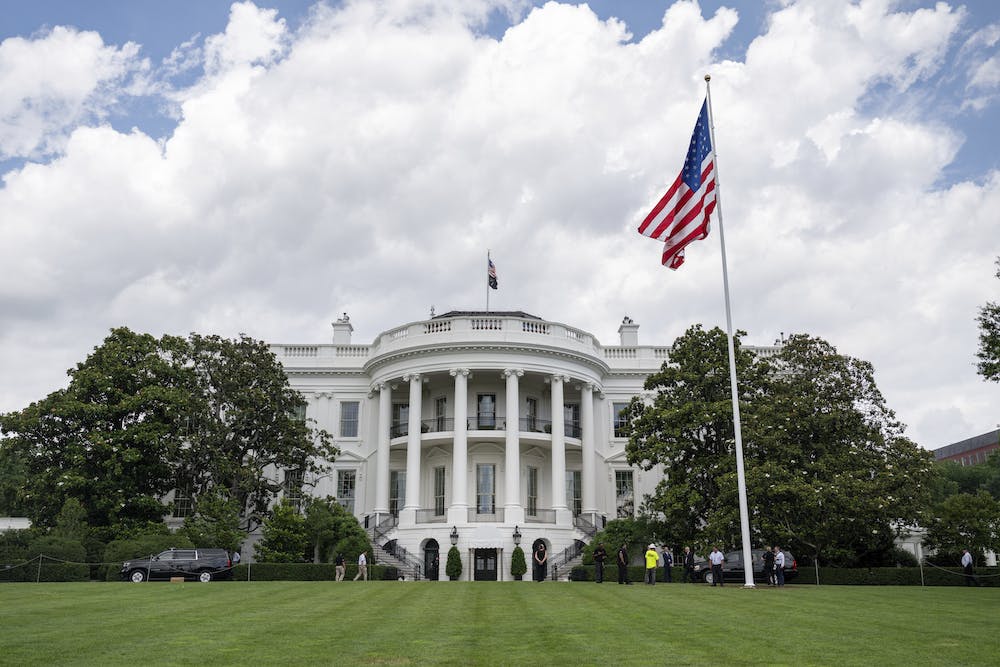Federal Tech Leads Discuss Quantum, AI Intersection
As USDA and NAVSEA explore the intersection of AI and quantum, leaders are focusing on workforce development to ensure successful adoption.

The U.S. Department of Agriculture (USDA) and Naval Sea Systems Command (NAVSEA) are exploring the intersection of artificial intelligence (AI) and quantum computing to enhance data analysis and improve predictive capabilities, while developing a skilled workforce equipped adoption, federal leaders explained during GovCIO Media & Research’s AI Summit on Nov. 7.
Rudolf Rojas, technical program manager at the U.S. Department of Agriculture (USDA), said the agency is looking to use AI and quantum to enhance analysis of geospatial data. AI allows the agency to collect and associate data. With the use of quantum computing, the agency could generate predictive analysis with greater speed and improved efficiency.
“We’re leveraging [that] to analyze areas where we might be vulnerable, and then also analyze how we can incorporate high performance computing and quantum computing in with our artificial intelligence capabilities,” said Rojas. “We have created some centers of excellence around the country as well … where they’re going to be training people in AI technologies and [trying] to bring the younger generations into that.”
Government is starting to release guidance to better arm agencies with the right tools to protect their systems and critical infrastructure from future attacks. The Office of Budget and Management (OMB) earlier this year tasked agencies with preparing data for the migration to post-quantum cryptography (PQC). In August, the National Institutes of Standards and Technology (NIST) published the three finalized PQC algorithms designed to withstand cyberattacks from a quantum computer.
As agencies continue to explore quantum, federal leaders are focusing on interagency collaboration and empowering the workforce to adopt quantum technologies and aid AI. Garry Shields, NAVSEA Carderock’s director of Disruptive Technologies Laboratory, said scientists and engineers need to improve soft skills, like storytelling, to convey the opportunities and advantages of emerging technologies.
“You need to know how to tell stories, how to market and how to get people roped into your networks. Innovation is not a technological game, it’s a social one,” said Shields.
Shields added that leveraging partnerships with third-party vendors will help agencies be more proactive in adapting quantum technologies.
“Unless we are proactive … we’re going to be in trouble,” said Shields “We need contract support staff and people outside in industry who have great development tools and applications that we can leverage and partner with.”
This is a carousel with manually rotating slides. Use Next and Previous buttons to navigate or jump to a slide with the slide dots
-

Agencies Tackle Infrastructure Challenges to Drive AI Adoption
Federal agencies are rethinking data strategies and IT modernization to drive mission impact and operational efficiency as new presidential directives guide next steps.
5m read Partner Content -

Generative AI Demands Federal Workforce Readiness, Officials Say
NASA and DOI outline new generative AI use cases and stress that successful AI adoption depends on strong change management.
6m read -

The Next AI Wave Requires Stronger Cyber Defenses, Data Management
IT officials warn of new vulnerabilities posed by AI as agencies continue to leverage the tech to boost operational efficiency.
5m read -

Federal CIOs Push for ROI-Focused Modernization to Advance Mission Goals
CIOs focus on return on investment, data governance and application modernization to drive mission outcomes as agencies adopt new tech tools.
4m read -

Fed Efficiency Drive Includes Code-Sharing Law, Metahumans
By reusing existing code instead of rewriting it, agencies could dramatically cut costs under the soon-to-be-enacted SHARE IT Act.
5m read -

AI Foundations Driving Government Efficiency
Federal agencies are modernizing systems, managing risk and building trust to scale responsible AI and drive government efficiency.
40m watch -

Navy Memo Maps Tech Priorities for the Future Fight
Acting CTO’s memo outlines critical investment areas, from AI and quantum to cyber and space, as part of an accelerated modernization push.
5m read -

DOD Can No Longer Assume Superiority in Digital Warfare, Officials Warn
The DOD must make concerted efforts to address cyber vulnerabilities to maintain the tactical edge, military leaders said at HammerCon 2025.
4m read -

New NSF Program Cultivates the Future of NextG Networks
The agency’s new VINES program looks to tackle key challenges like energy efficiency and future-proofing wireless tech.
21m watch -

DHA CDAO Spearheads Master Data Catalog to Boost Transparency
Jesus Caban plans to boost DHA's data maturity through a new master data catalog, governance frameworks and inventory of tech tools.
5m read -

Trump Orders Spark Government-Wide Acquisition Overhaul
As Trump pushes for a faster, simpler procurement system, agencies are leveraging AI and adapting strategies to meet new requirements.
5m read -

Inside Oak Ridge National Lab’s Pioneer Approach to AI
Energy Department’s Oak Ridge National Lab transforms AI vulnerabilities into strategic opportunities for national defense.
22m listen
















